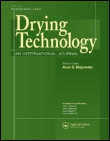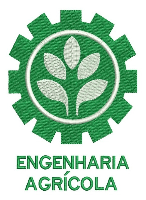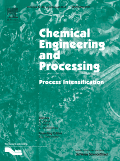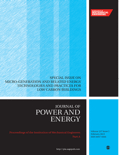
DRYING TECHNOLOGY
Scope & Guideline
Connecting Researchers and Practitioners in Drying Science
Introduction
Aims and Scopes
- Innovative Drying Techniques:
Focus on the development and optimization of new drying methods including microwave, infrared, ultrasonic, and hybrid technologies, aimed at enhancing efficiency and product quality. - Mathematical and Computational Modeling:
Emphasis on the use of mathematical models and simulations to analyze drying kinetics, moisture transfer, and energy consumption in various drying processes. - Food and Bioproduct Drying:
Concentration on the drying of food products and bioproducts, including the effects of drying methods on nutritional and functional properties. - Pharmaceutical Drying:
Exploration of drying technologies in the pharmaceutical industry, including freeze-drying and spray-drying techniques for drug formulation and stability. - Sustainability and Energy Efficiency:
Research dedicated to improving energy efficiency and sustainability in drying processes, including the use of renewable energy sources and waste heat recovery. - Material Characterization and Quality Assessment:
Studies focusing on the impact of drying processes on material properties, including microstructure, quality, and shelf-life of dried products.
Trending and Emerging
- Artificial Intelligence and Machine Learning Applications:
The integration of AI and machine learning techniques in optimizing drying processes and predicting moisture content has gained traction, reflecting a broader trend in utilizing data-driven approaches in engineering. - Advanced Material Drying for Pharmaceuticals:
An increasing focus on the drying of pharmaceutical products, particularly in relation to the stability and efficacy of drug formulations, highlights the importance of tailored drying methods in the industry. - Sustainable and Green Drying Technologies:
Emerging research emphasizes environmentally friendly drying technologies that minimize energy consumption and reduce carbon footprints, aligning with global sustainability goals. - Multi-Methodological Approaches:
There is a growing trend towards studies that combine multiple drying techniques and methodologies to achieve optimized results, reflecting a shift from single-method studies. - Impact of Drying on Nutritional and Functional Properties:
An increased interest in understanding how different drying methods affect the nutritional and sensory qualities of food products is evident, indicating a focus on food quality enhancement.
Declining or Waning
- Traditional Drying Methods:
There is a noticeable decrease in publications focused on conventional drying methods such as sun-drying and basic hot air drying, as researchers increasingly explore more advanced and efficient drying technologies. - General Reviews of Drying Techniques:
While comprehensive reviews have been popular, the trend is shifting towards more specific studies and innovative applications rather than broad overviews of existing techniques. - Single-Application Studies:
Research that focuses solely on the application of a single drying method without comparative analysis has become less frequent, as the trend moves toward multi-faceted approaches that integrate various technologies. - Historical Perspectives in Drying Technology:
There appears to be a decline in papers that focus on historical or retrospective analyses of drying technologies, as the field pushes towards future-oriented research and innovation.
Similar Journals

Applied Chemistry for Engineering
Advancing Knowledge for Real-World ApplicationsApplied Chemistry for Engineering, published by the Korean Society of Industrial and Engineering Chemistry, is a vital resource for researchers and professionals engaged in the realms of chemical engineering and applied chemistry. With an ISSN of 1225-0112 and an E-ISSN of 1228-4505, this journal serves as a platform for innovative research that spans diverse applications within these fields. Although currently not classified under open access, it provides critical insights and advancements to its audience, contributing to the ongoing discourse in the industry. The journal's significance is underscored by its rankings in Scopus, where it resides in the Q4 category for both Chemical Engineering and Chemistry, evidencing its commitment to publishing relevant studies despite its emerging status. As it continues to grow through the converged years from 2007 to 2024, Applied Chemistry for Engineering aims to bridge the gap between theoretical research and practical engineering solutions, making it an essential tool for students, researchers, and professionals alike.

Fuentes el Reventon Energetico
Empowering Researchers with Open Access to Energy InsightsFuentes el Reventon Energetico, published by UNIV INDUSTRIAL SANTANDER, stands as a significant open-access journal since 2003, dedicated to the diverse fields of energy research and physical and theoretical chemistry. Based in Colombia, this journal aims to facilitate the dissemination of innovative research findings and emerging trends within these dynamic sectors. With an impressive academic foundation highlighted by its Q4 rankings in both energy (miscellaneous) and physical and theoretical chemistry as of 2023, the journal seeks to support both budding and established researchers in their quest for knowledge, fostering interdisciplinary collaboration. While its Scopus rankings place it within the lower percentiles in its categories, the journal remains committed to enhancing its visibility and impact through accessible publication of scholarly work. By bridging gaps between theory and application, Fuentes el Reventon Energetico plays an essential role in advancing energy solutions and innovative chemical applications, making it a valuable resource for researchers, professionals, and students alike.

Food Engineering Reviews
Advancing Food Engineering Knowledge for a Sustainable Future.Food Engineering Reviews is a prestigious journal published by SPRINGER, dedicated to advancing the field of food engineering through comprehensive review articles that synthesize current research and innovative practices. With an ISSN of 1866-7910 and an E-ISSN of 1866-7929, this journal serves as a vital resource for researchers, professionals, and students interested in the intricacies of food processing, preservation, and engineering techniques. Notably, the journal holds an impressive Q1 ranking in the category of Industrial and Manufacturing Engineering as of 2023, and it is positioned in the 94th percentile within its field according to Scopus rankings, highlighting its significance within the academic community. Although it does not offer open access, the rigorous content published in the journal from its inception in 2009 through to 2024 plays a crucial role in shaping practices that promote efficiency and sustainability in food engineering. The journal aims to foster knowledge exchange among scholars and industry experts, ensuring that emerging trends and foundational research are accessible to those striving towards excellence in food technology.

Pertanika Journal of Science and Technology
Exploring the frontiers of research and development.Pertanika Journal of Science and Technology, published by UNIV PUTRA MALAYSIA PRESS, stands as a significant platform in the fields of Agricultural and Biological Sciences, Chemical Engineering, Computer Science, and Environmental Science. With an ISSN of 0128-7680, this esteemed journal aims to foster high-quality research and knowledge sharing by presenting novel studies and advancements from 2010 onwards, with expectations of convergence until 2024. Recognized as a Q3 journal in multiple categories, including miscellaneous fields of the aforementioned domains, it offers a valuable resource for researchers, students, and industry professionals seeking to push the boundaries of science and technology. Though access options are currently limited, the journal's commitment to disseminating essential findings contributes to its credibility and relevance in the academic community, making it an essential read for those invested in cutting-edge scientific research and development. Based in Serdang, Selangor, Malaysia, the journal not only caters to a global audience but also emphasizes the significance of local research advancements in a broader context.

Engenharia Agricola
Bridging knowledge and practice in agricultural sciences.Engenharia Agricola, published by the SOC BRASIL ENGENHARIA AGRICOLA, is a crucial open-access journal that has been at the forefront of agricultural engineering research since its inception in 1981. With an E-ISSN of 1809-4430 and an ISSN of 0100-6916, this journal stands out in the field by providing a platform for disseminating innovative studies and advancements in agricultural practices and technologies. Based in Brazil, the journal emphasizes global perspectives in agricultural and biological sciences, currently positioned in the Q3 quartile of its category, as recognized in the 2023 Scopus Ranks, where it ranks 97 out of 193 publications. Researchers, professionals, and students can access a plethora of high-quality articles that contribute to sustainable agronomy, agricultural mechanics, and resource efficiency across various environments, with open access since 2004, ensuring that critical knowledge is readily available to all stakeholders in the field.

Chemical Engineering and Processing-Process Intensification
Pioneering Research in Process OptimizationChemical Engineering and Processing - Process Intensification is a leading journal published by Elsevier Science SA, specializing in the multifaceted domain of chemical engineering. With the ISSN 0255-2701 and E-ISSN 1873-3204, this journal stands as a beacon of knowledge, facilitating the dissemination of innovative research from 1984 onwards and continuing through 2024. Renowned for its rigorous peer-review process, it boasts a distinguished reputation, reflected in its top-tier rankings within several fields: Q1 in Chemical Engineering (Miscellaneous), Q2 in Chemistry, and Q1 in Industrial and Manufacturing Engineering. This journal focuses on the advancements in process intensification, which are crucial for optimizing efficiency and sustainability in chemical processes. Although access is not open, the journal serves as an essential resource for researchers, professionals, and students alike who seek to advance their understanding and contribute to the evolving landscape of chemical engineering and process technology. Join a community of innovators driving the future of process engineering through impactful and cutting-edge research.

THEORETICAL FOUNDATIONS OF CHEMICAL ENGINEERING
Pioneering Insights in Chemical TheoryTHEORETICAL FOUNDATIONS OF CHEMICAL ENGINEERING is an esteemed academic journal published by PLEIADES PUBLISHING INC, dedicated to advancing the field of chemical engineering and chemistry through rigorous theoretical discourse and scholarly communication. With a history of publication dating back to 1974, the journal has been a vital resource for researchers and professionals, contributing to the foundation of knowledge in this multidisciplinary domain. Although it does not offer open-access options, it remains an essential platform for innovative research, boasting a 2023 ranking in the Q3 quartile for both Chemical Engineering and General Chemistry categories. The journal is indexed in Scopus, where it ranks #210 out of 273 in Chemical Engineering and #317 out of 408 in Chemistry, emphasizing its growing relevance within the scholarly community. Researchers, educators, and students alike can benefit from the insights and findings shared within its pages, making it a critical venue for those seeking to enhance their expertise in theoretical chemical engineering.

RUSSIAN JOURNAL OF APPLIED CHEMISTRY
Exploring the Depths of Chemical Knowledge Since 1995RUSSIAN JOURNAL OF APPLIED CHEMISTRY, published by PLEIADES PUBLISHING INC, serves as a pivotal platform for advancing knowledge in the fields of chemical engineering and general chemistry. With an ISSN of 1070-4272 and an E-ISSN of 1608-3296, this journal has been in continuous publication since 1995 and is set to continue until 2024. Although it operates without an open access model, researchers can access a wealth of innovative research findings, critical reviews, and insightful discussions that reflect the current trends and challenges in applied chemistry. Its rankings place it in Q3 quartiles for both Chemical Engineering and Chemistry as of 2023, indicating its emerging influence within these disciplines. The Scopus rankings further highlight its relevance, positioning it in the lower percentiles, suggesting a fertile ground for researchers aiming to elevate the field. Engaging with this journal can enrich academic and professional understanding, making it an essential resource for anyone dedicated to furthering their expertise in applied chemistry.

PROCEEDINGS OF THE INSTITUTION OF MECHANICAL ENGINEERS PART A-JOURNAL OF POWER AND ENERGY
Transforming Ideas into Energy SolutionsPROCEEDINGS OF THE INSTITUTION OF MECHANICAL ENGINEERS PART A-JOURNAL OF POWER AND ENERGY, published by SAGE PUBLICATIONS LTD, is a pivotal journal dedicated to advancing the fields of mechanical engineering and energy technology. With a history spanning from 1983 to 2024, this journal provides a respected platform for researchers and practitioners to disseminate findings that address contemporary challenges in power generation, energy efficiency, and sustainable engineering practices. As evidenced by its quarter ranking in Q3 within the categories of Energy Engineering and Power Technology, and Mechanical Engineering, it serves as a significant resource for academics aiming to enhance their understanding and explore innovation in these critical areas. While currently not an open-access journal, the research published here is invaluable for both ongoing education and professional practice, making it an essential read for anyone engaged in the engineering disciplines.

Journal of Agricultural Machinery
Pioneering Solutions for Modern Agricultural ChallengesJournal of Agricultural Machinery, published by FERDOWSI UNIVERSITY MASHHAD PRESS, is a premier Open Access journal that has been serving the agricultural engineering community since 2011. This journal is dedicated to disseminating cutting-edge research, innovative practices, and technological advancements related to agricultural machinery. With an ISSN of 2228-6829 and an E-ISSN of 2423-3943, it provides a vital platform for researchers and professionals in the field to share their findings and insights. The journal, based in Iran at the Ferdowsi University of Mashhad, aims to bridge gaps between research and application, enhancing productivity in agriculture through improved machinery and methodologies. Despite its current Scopus ranking at the lower end of the spectrum, the journal is committed to elevating its impact and expanding its scope, focusing on innovative solutions that address pressing challenges in agricultural practices. As an Open Access resource, it ensures unrestricted availability to scholarly articles, fostering a collaborative environment for growth and learning among researchers, professionals, and students alike.